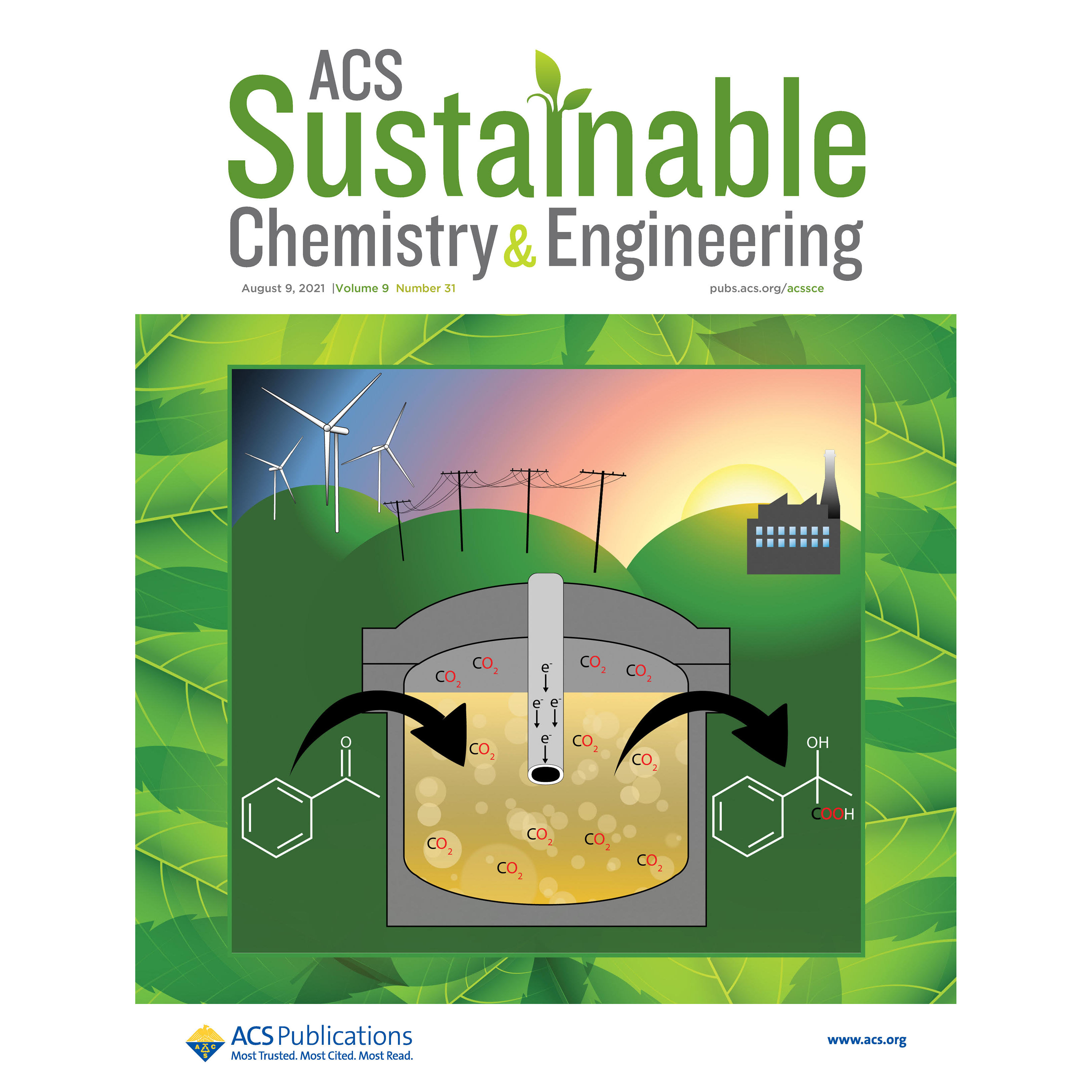
""Organic Electrosynthesis in CO2-eXpanded Electrolytes: Enabling Selective Acetophenone Carboxylation to Atrolatic Acid""
Featuring Featuring Kevin Leonard, his PhD graduate Matthew Stalcup, and collaborators Chrisitan K Nilles, Hyun-Jin Lee, Bala Subramaniam, and James Blakemore
Abstract
Electrochemical carboxylation is an organic electrosynthesis technique where CO2 is coupled with one or more organic molecules to form carboxylic acids. Here, we show that process intensification and selectivity enhancements are simultaneously achieved by performing electrochemical carboxylation in CO2-eXpanded electrolytes (CXE)—a class of media that accommodates multimolar concentrations of CO2 in organic solvents at modest pressures. We observed that electrochemical carboxylation of acetophenone does not occur at ca. 1 atm (0.2 MPa) CO2 headspace pressure. Instead, acetophenone hydrogenation was dominant, producing the undesired 1-phenylethanol as the major product. However, in the CXE media (at 1.4–4.2 MPa CO2 headspace pressure), (±)-atrolactic acid was the major product with a maximum faradaic efficiency of 72% observed at 2.8 MPa. Achieving the pressure-tunable carboxylation results from the high liquid-phase CO2concentrations afforded by the CXE media. At CO2 pressures exceeding 2.8 MPa, we observed a lower rate of carboxylation, which is attributed to the decreased electrolyte polarity at progressively greater liquid-phase CO2 concentrations present at higher pressures.
Citation
Matthew Stalcup, C.K. Nilles, H.J. Lee, B. Subramaniam, J. D. Blakemore, and K.C. Leonard. Organic Electrosynthesis in CO2-eXpanded Electrolytes: Enabling Selective Acetophenone Carboxylation to Atrolatic Acid. ACS Sustainable Chem. Eng. 2021, 9, 31, 10431–10436